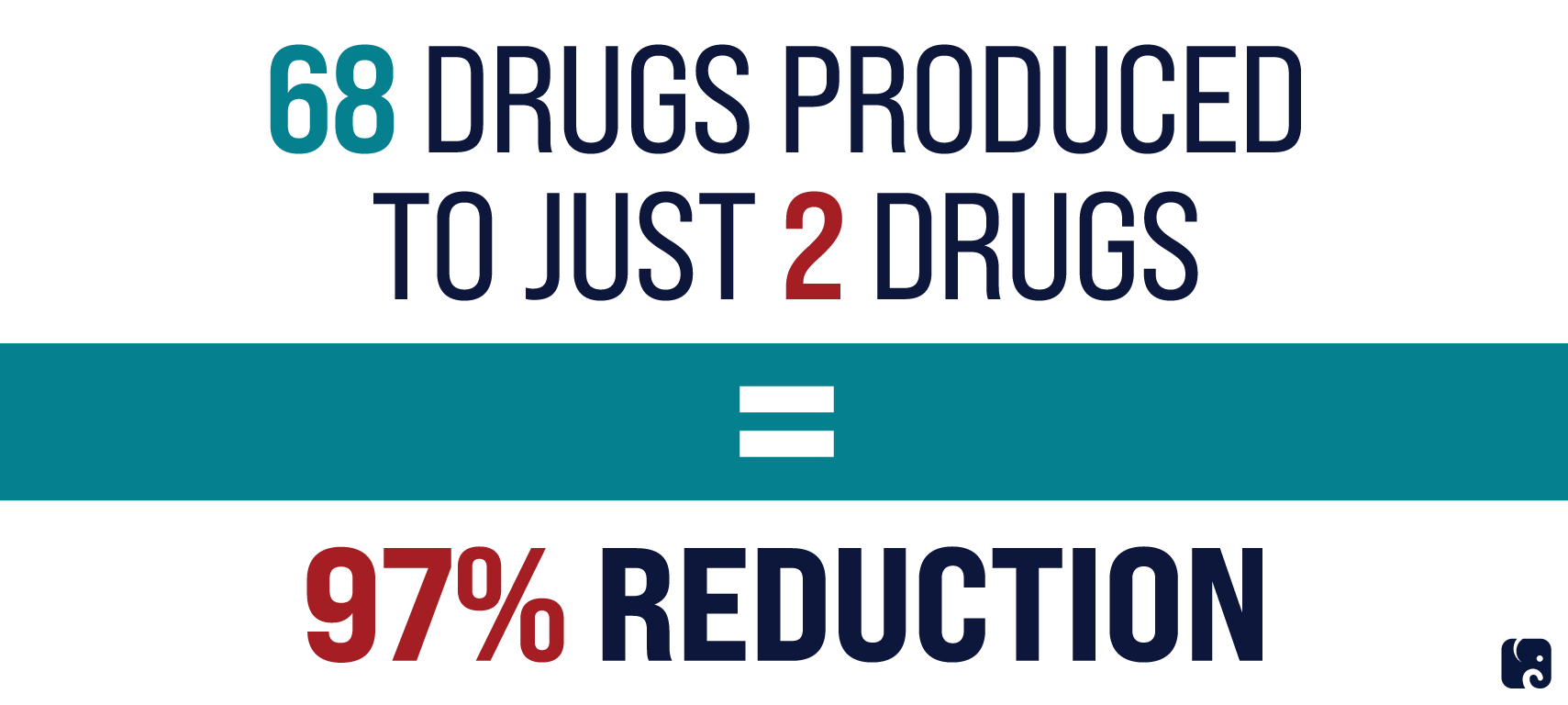Democrats Would Squash Drug Innovation
KEY TAKEAWAYS
- Democrats have introduced a plan that would decimate pharmaceutical innovation, especially for drugs to treat rare and complex diseases.
- Their legislation would cause more than a 90% reduction in medicines developed by small and emerging biotech companies.
- The Democrats’ plan would be especially devastating for patients with diseases that currently have no cure, or even effective treatment, like Alzheimer’s disease.
Democrats have introduced legislation to impose price controls for pharmaceuticals, which would dramatically cut the resources needed for drug innovation. The bill, H.R.3, would allow the secretary of health and human services to set a ceiling on drug prices in Medicare, based on what other countries pay for the products. The House passed the bill last Congress and reintroduced it on April 22. Senator Sanders has introduced legislation to require the HHS secretary to set Medicare Part D prices and “prioritize negotiating for drugs that place the most burden on seniors and taxpayers.”
devastating to innovation
H.R.3 would base the price Medicare pays for certain single-source, non-generic drugs on the price set by the HHS secretary. The range of negotiated outcomes, however, would be restricted by a price ceiling equal to 120% of the average price paid in Australia, Canada, France, Germany, Japan, and the United Kingdom. The secretary would be required to set prices for at least 25 drugs in 2024 and at least 50 drugs each year after that. Drugs eligible for price setting would be the 125 drugs in Medicare Part D with the highest net spending and the 125 drugs accounting for the most spending across the entire United States. Insulin and any newly approved products with a “wholesale acquisition cost” at least equal to the U.S. median household income would also be eligible. Prices set by the secretary would be mandated in the Medicare program and available to commercial plans, drastically expanding the role of the HHS secretary in setting prices in the private market. Drug makers that do not accept the set price would be charged an excise tax of 65% to 95% of their gross sales from the drug.
When the Congressional Budget Office scored the 2019 version of H.R.3, it estimated that as a result of the excise tax, manufacturers would be forced to take the price set by the secretary, which would save the federal government $456 billion over 10 years. The savings would come at the cost of fewer drugs being brought to market, which would harm American patients.
Democrats’ Plan Would Mean Fewer New Drugs Brought to Market

Price setting would drastically shrink revenue for pharmaceutical companies and their research and development budgets. Compared to other industries, pharmaceutical manufacturers invest large amounts of their revenues in R&D, making innovation in this industry particularly vulnerable to price controls.
According to one study, H.R.3 would reduce the earnings of affected drug companies by 62% on average. One-third of these companies would see their earnings drop by more than 95%. This would lead drug makers to cut their investments and partnerships in researching new treatments. The study estimates that if the government sets the price on 125 products, the number of medicines developed by small and emerging biotechnology firms would drop from 68 new drugs per year to only two, a 97% reduction.
alzheimer’s Research screeches to a halt
The Democrats’ plan is focused on drugs with the highest cost and ignores the need for treatments and cures to help develop personalized medicine. The most challenging diseases, like Alzheimer’s, require the most investment to study and develop treatments. Developing a new dementia drug has been estimated to cost $5.7 billion and take about 13 years. Drug makers can take on this risk and investment only if they make enough money on other products. If the government artificially limits those other revenue sources, drug innovators would likely stop researching Alzheimer’s disease entirely.
According to the Alzheimer’s Association, care for people with Alzheimer’s or other forms of dementia will cost the U.S. $355 billion this year. By 2050, the group estimates 12.7 million people age 65 and older will have Alzheimer’s. Continued investment in developing treatments for this disease is vital to reduce the burden on the public health system.
Public policy should preserve incentives for innovators to tackle our most pressing public health challenges while also taking legitimate steps to ensure medicines are affordable and accessible for those who need them. The Democrats’ plan plainly fails this test, putting political expediency before the long-term needs of patients.
Next Article Previous Article
